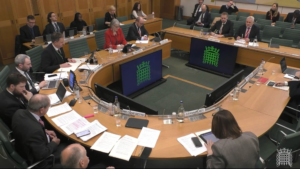Bernard Seymour advises against writing your own will.
With the current cost of living crisis, we are all trying to make savings where possible. In the past few months, a number of members have told me they have taken my advice and made a will, but because their affairs are “not complicated” and they are leaving everything to their spouse/children, they have written the will themselves.
I can understand this, but there are several reasons why I would not advise it:
1. Even if a will may appear simple, if a small mistake is made, this could make the will invalid or have consequences you would not have wanted.
2. If a will is considered to be invalid, the rules of intestacy will apply and this may mean that those you do not wish to inherit will do so.
3. A DIY will is unlikely to cover a change of circumstances, such as the breakdown of a relationship, new grandchildren or the death of someone named in the will, and may therefore be out of date at the time of your death.
4. A legally drafted will can help with inheritance tax planning and in some cases reduce the cost of care.
Unravelling mistakes
When I was in legal practice, I saw many cases where homemade wills had to be unravelled. Issues I came across included:
1. A will not being signed correctly. There are very strict rules about signing a will and if these are not followed to the letter, this could make the will invalid. There was one case where the pen ran out of ink during the signing process and the colour was switched from blue pen to black pen, and the court queried the validity of the will.
2. The number of executors appointed in the will was wrong. It is a common misconception in a simple will that only one executor is required. There are situations when two executors are needed. In one matter I dealt with, a professional executor had to step in, which meant that the whole process was more costly.
3. Ambiguity is the biggest risk. A will is drafted with tight legal language and the court will interpret wishes very strictly. If there is ambiguity, this can lead to either a possible challenge by a family member or that part of the will failing. In my experience, wills that resulted in a legal challenge occurred more because of ambiguity than due to someone who believed they should inherit not doing so.
4. Assets changing but there being no provision in the will to compensate for this.
In one very sad case, the will set out specifically what each grandchild would inherit. After death, it became clear that some savings had been used to provide for care and this particular savings account no longer existed. This part of the will failed and the grandchildren received nothing. In conclusion, my advice is always to take professional advice. You may find that the cost of making a will is not as expensive as you thought. I can say with certainty that the cost of unravelling a poorly drafted will is likely to be greater.
The CSPA works with solicitors across the UK who offer free initial advice to CSPA members.
Visit the members’ section of our website, by clicking the button opposite, for full information.






